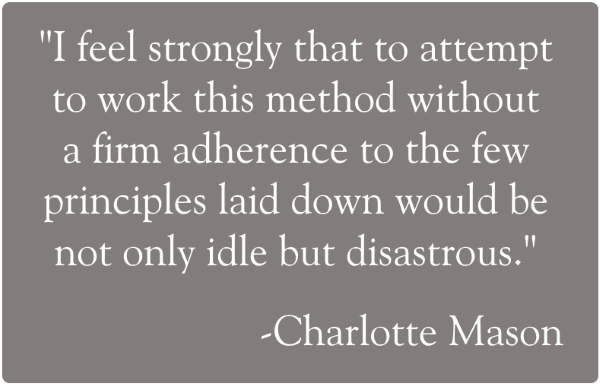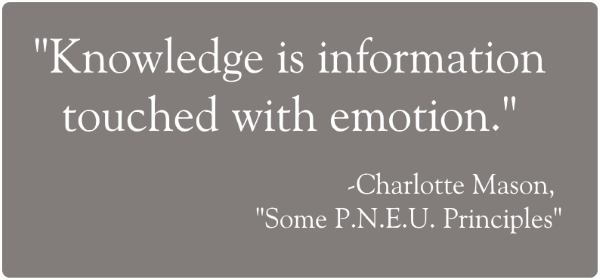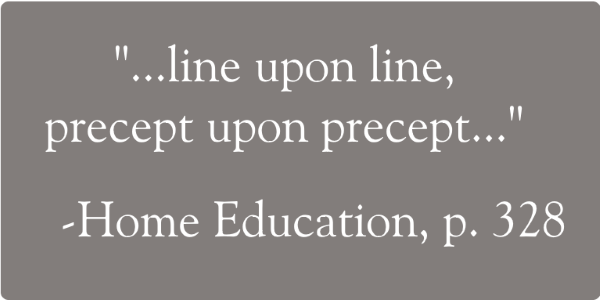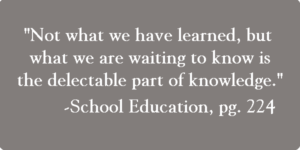How closely should we adhere to all of Charlotte Mason’s principles and practices? This podcast explores the ramifications of taking part of Mason’s method, practicing some of her ideas or mixing in other curricula, and addresses whether it is positive or negative to be labeled ‘A Charlotte Mason Purist.’
Listen Now:
“The reader will say with truth–‘I knew all this before and have always acted more or less on these principles’; and I can only point to the unusual results we obtain through adhering not ‘more or less’ but strictly to the principles and practices I have indicated. I suppose the difficulties are of the sort that Lister had to contend with; every surgeon knew that his instruments and appurtenances should be kept clean, but the saving of millions of lives has resulted from the adoption of the great surgeon’s antiseptic treatment; that is from the substitution of exact principles scrupulously applied for the rather casual ‘more or less’ methods of earlier days.” (Vol. 6, p. 19)
“We do not invite Heads of schools to take up work lightly, which implies a sound knowledge of certain principles and as faithful a practice. The easy tolerance which holds smilingly that everything is as good as everything else, that one educational doctrine is as good as another, that, in fact, a mixture of all such doctrines gives pretty safe results,––this sort of complacent attitude produces lukewarm effort and disappointing progress. I feel strongly that to attempt to work this method without a firm adherence to the few principles laid down would be not only idle but disastrous. ‘Oh, we could do anything with books like those,’ said a master; he tried the books and failed conspicuously because he ignored the principles.” (Vol. 6, p. 270)
“We have a method of education, it is true, but method is no more than a way to an end, and is free, yielding, adaptive as Nature herself. Method has a few comprehensive laws according to which details shape themselves, as one naturally shapes one’s behaviour to the acknowledged law that fire burns. System, on the contrary, has an infinity of rules and instructions as to what you are to do and how you are to do it. Method in education follows Nature humbly; stands aside and gives her fair play.” (Vol. 2, p. 168)
Art Middlekauff’s helpful article on this very topic














